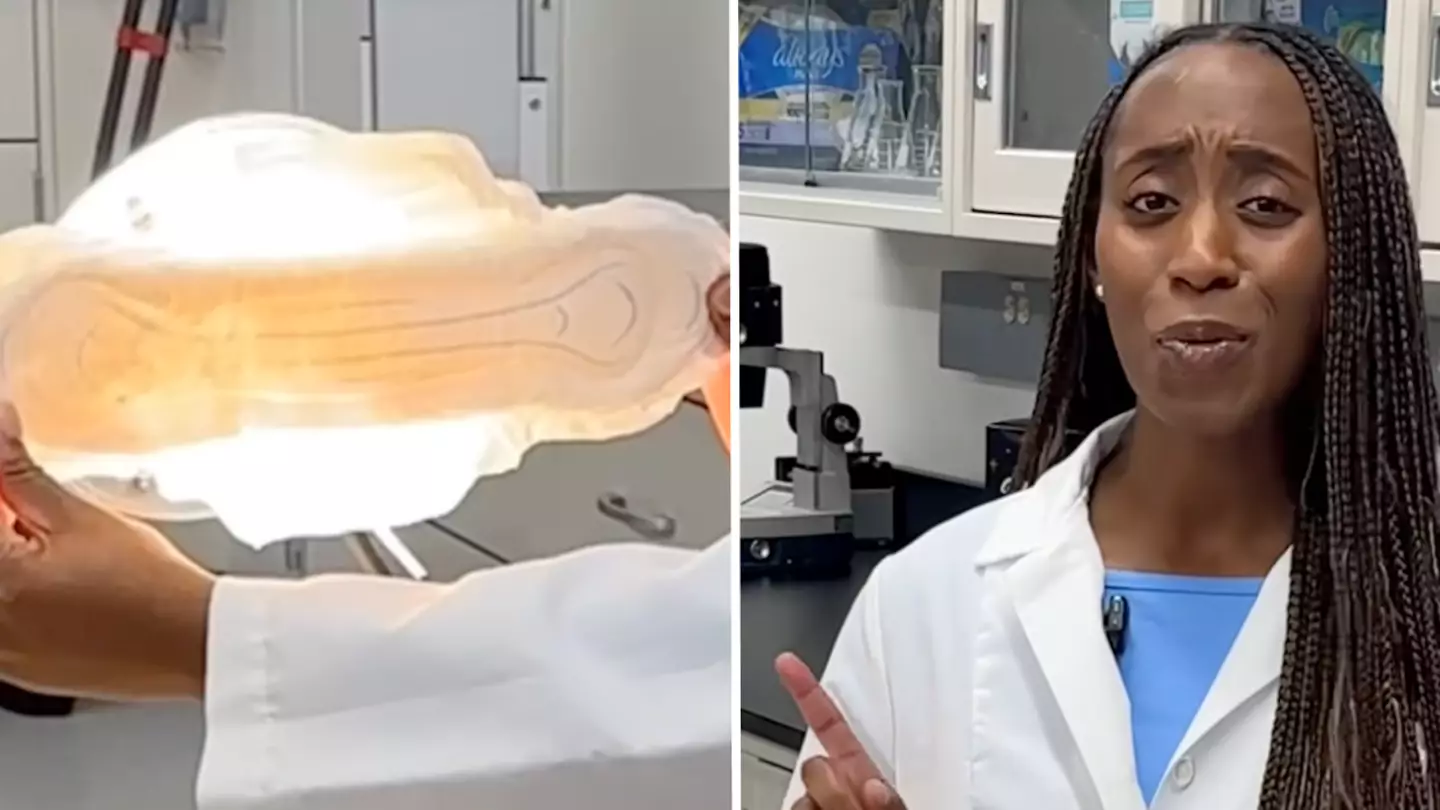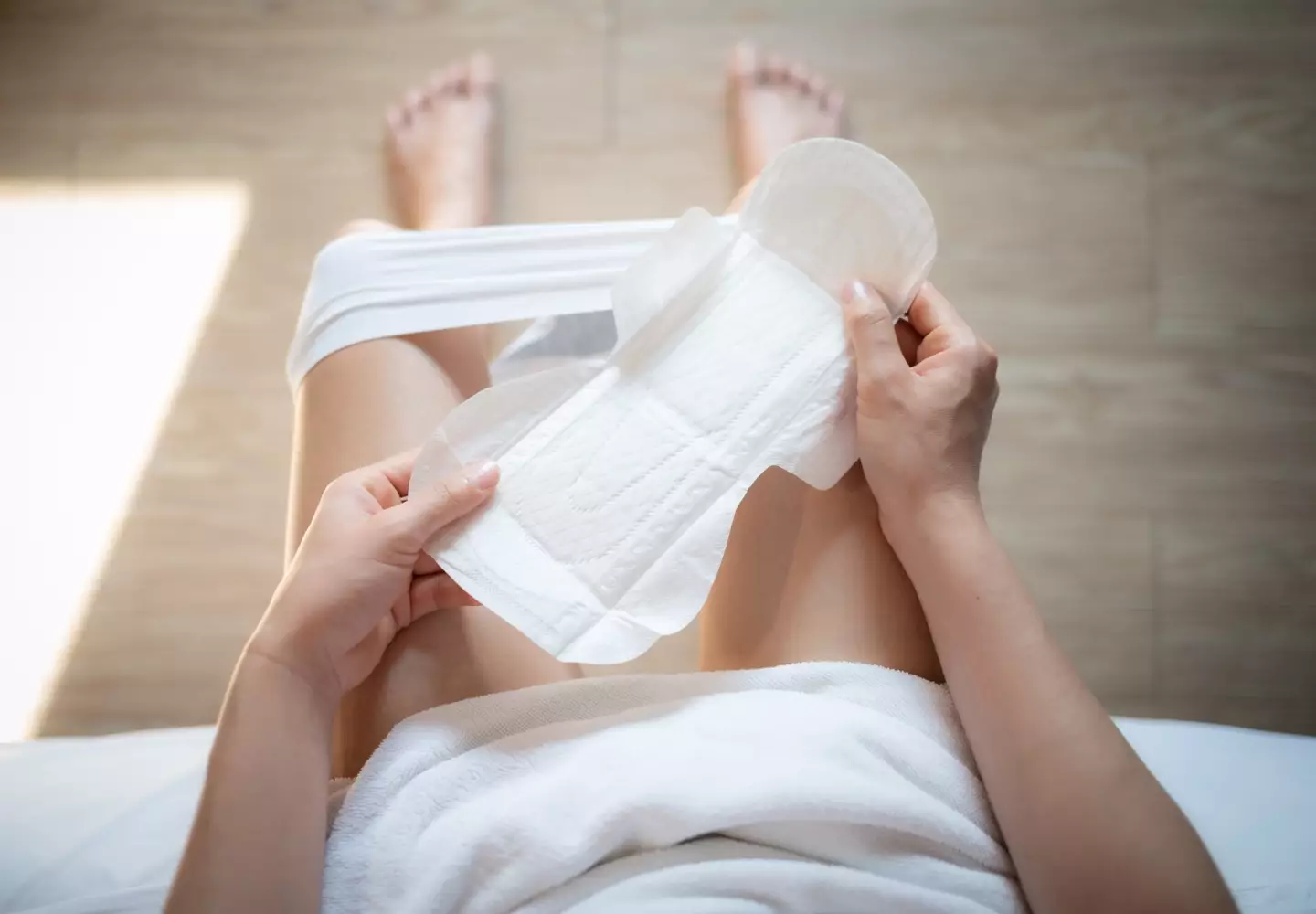
People have been seriously freaking out over videos of 'mouldy' period pads that have been doing the rounds on TikTok - but everything is not as it seems.
If you have no idea what we're talking about, a number of Gen Z women have taken to the social media app to allege that they've found mould in a variety of Always pads and warn others.
The videos in question consist of someone holding up their freshly-opened sanitary towel to the light to reveal dark specs inside the cotton, claiming 'it has mould inside'.
Like anything does on the internet, this rumour has spread like wildfire with people around the world rushing to conduct the experiment themselves to see if their period product looks the same.
Advert
In one TikTok that's racked up over 40 million views, someone penned: "Please be aware of this. @Always why does a brand new just out of the bag pad have mold on it? #fyp #women #womenshealth."

However, this is a big lesson to not believe everything you read on the internet, as it is in fact not mould, butt absorbent pulp fibres that are often used in menstrual products.
As the worrying claims and mass panic began to surge, Cosmopolitan reached out to Always directly and they issued a lengthy explanation.
Their statement to the publication read: "Absorbent pulp fibres are often used in menstrual products. Always only uses virgin pulp designed specifically for our menstrual products – no reused, no recycled fibres!
"The pulp inside these pads is white. Why does the pad appear discoloured when you hold it up to a light?
"The darker colours you see when putting your pad up against a light are not foreign material contamination. They are normal shadows that appear in products that contain pulp."
The statement continued: "When you shine light on these products, the absorbent core material creates visible shadows as it blocks the light. You get the same result if you repeat this experiment with many everyday household items made with pulp like cotton balls, make-up remover pads or even paper. Consumer safety is our top priority. Our pads are used safely by millions of women every day around the world and Always is the #1 pad brand recommended by Gynecologists and Pediatricians in the US."
So, there you have it, not mould at all, just all the normal stuff used to absorb period blood!
To well and truly squash the misinformation, Always also posted a video from one of their scientists, Mariah, to shed light on the situation some more.
She explained: "Many pads are made with absorbent pulp fibres. Always brand specifically uses brand new pulp made for our menstrual products. No reused or recycled fibres here."
The expert then held up a pad to the light and added: "Now, why might the pad look darker or spotted when you put it up to the light? That's just shadows from the pulp. It can block or diffract from the light. Pulp can be dense in some areas, making the fibres look like spots. You may see this effect with other brands as well."
Don't throw your pads out - panic over!
Topics: TikTok, Gen Z, Periods, Women's Health, Explained, Health, Science, Social Media